|
At present, more than 70% of solar photovoltaic products are exported from China, and 5-6 of the top ten PV cell manufacturers in the world are Chinese companies. China has become a veritable country in the production of photovoltaic products. However, due to the relatively slow start of the domestic application market, more than 90% of the domestically produced photovoltaic products are used for export to the European market, resulting in any turmoil in the international market that can directly affect the survival of China's PV companies. When China's PV products go out, how to go fast and stable is worth thinking about. An authoritative certificate issued by a third-party organization that proves the reliability and reliability of an enterprise's products has become a necessary condition for enterprise products to enter the international market.
At present, the certification of international photovoltaic products mainly includes the US UL certification, the Canadian CSA certification, etc., China has the Golden Sun certification.
Certification can not only improve the customer's good impression of product quality and corporate reputation, but also the authoritative third-party certification is also a necessary condition for buyers to purchase products, and is a passport for products to enter the international market. More importantly, in the field of photovoltaics, certification is also one of the necessary conditions for product financing and policy support. When many companies seek export credit insurance or financial institution financing support, the other party often asks for product quality requirements. At this time, the product certificate is a proof of high quality assurance. For example, in Germany, one of the largest markets for photovoltaic products, importers often require certificates and reports from relevant agencies to be used to obtain support from financing institutions. In addition, different governments have also introduced a series of financial subsidies for photovoltaic products. PV system operators will not only benefit from the use of photovoltaic power generation, but also receive state funding. Many countries are accelerating their solar programs, and state subsidies are an important measure for manufacturers, importers, installers, investors and operators.
In the intensified competition in the photovoltaic market, some export companies are also looking for other opportunities and ways to increase their market competitiveness. Participation in certification is undoubtedly a shortcut to open the market, but the products are not smooth in certification. From the perspective of certification, the accuracy of power measurement of photovoltaic products, the consistency and reliability of product quality, and the problems of quality control are more prominent. At present, most companies have their own quality control departments that will detect and control the quality of their products. The power measurement of the component is directly related to the economic interests of the factory and the buyer. The factors affecting the accuracy of the component power measurement are various, such as the degree of agreement between the test environment and the STC, the accuracy of the device, the consistency, the stability, and the operator. The experience and skills, the test standard board / the periodic calibration of the test equipment, etc., so the test experience, test conditions, process control requirements of different companies are often different, the results of different quality control will be very different. The reporters of Polaris Solar Photovoltaic Network summarized the access certification institutions of photovoltaic products in the world, for enterprises to understand and provide reference for Chinese PV to enter the international market.
TUV
Authoritative: widely accepted certifications in Europe and Germany

The TüV logo is a safety certification mark customized for TüV in Germany and is widely accepted in Germany and Europe.
The purpose of applying safety standards is to prevent personal injury and property damage caused by various hazards that may occur during the use of home appliances, including electric shock or electric shock, excessive temperature or fire, mechanical hazards, radioactive hazards, and chemistry. Sexual danger. Appliance regulations in all major regions of the world are based on the IEC standard IEC60335, with European standards being the closest to international standards. The European standard is divided into two parts. The first part is divided into EN60335-1, which is the comprehensive requirement of household appliances. The second part, EN60335-2, is a special additional requirement for various household appliances. This part has dozens of standards.
CE
Authoritative: Passports entering the European market

The CE mark is a safety certification mark and is regarded as a passport that the manufacturer opens and enters the European market.
CE stands for European Unity (CONFORMITEEUROPEENNE). Products bearing the "CE" mark can be sold in EU member states without meeting the requirements of each member state, thus realizing the free circulation of goods within the EU member states.
IEC
Authoritative: World Standardization Certification

The IEC standard, the International Electrotechnical Commission, is a worldwide standardization organization composed of national electrotechnical committees. Its purpose is to promote standardization in the world of electrical and electronic fields.
The purpose of the IEC is to promote internationalization in the field of electrification, electrical engineering and related international cooperation through its members, such as conformity assessment based on standards, cooperation in electrical, electronic and related technologies.
UL
Authoritative: the most authoritative certification in the United States

UL is a shorthand for Underwriter Laboratories Inc. The UL Safety Laboratory is the most authoritative in the United States and the largest private institution in the world for safety testing and identification. It is an independent, non-profit, professional organization that tests for public safety.
It uses scientific testing methods to determine the extent to which various materials, devices, products, equipment, buildings, etc. are hazardous or harmful to life and property; to determine, prepare, and issue appropriate standards and to help reduce and prevent life. The property is subject to loss of information, and at the same time, the fact-finding business is carried out. UL is principally engaged in product safety certification and business safety certification business. Its ultimate goal is to provide products with a fairly safe level of quality for the market and to contribute to the protection of personal health and property safety.
VDE
Authoritative: Neutral and independent certification

The VDE Testing and Certification Institute in Offenbach, Germany is a research institute of the German Institute of Electrical Engineers (Verde Deutscher Elektrotechniker, VDE), founded in 1920.
As a neutral, independent organization, VDE's laboratories inspect and certify electrical products in accordance with German VDE national standards or European EN standards, or IEC International Electrotechnical Commission standards.
DLG
Authoritative: Professional certification of solar energy systems

The German Agricultural Association (DLG) was founded in 1885 and is headquartered in Frankfurt, Germany.
DLG is committed to promoting technological advancement and development in agriculture and food. It is one of Europe's leading NGOs for food and agricultural development, providing professional services to 20,000 members from all over the world, such as agricultural and food technology promotion, agriculture. Mechanical quality/safety certification, food safety testing, publications, agricultural machinery, livestock exhibitions, and field site guidance activities. DLG's services include animal husbandry, agricultural engineering, food testing certification, and farm input/farm testing certification.
ETL
Authoritative: Certification recognized by the judicial authorities in the United States

ETL refers to ETL Testing Laboratories Inc. (ETL Testing Laboratories Inc). ETL's listed products are recognized by the “AuthoritiesHaving Jurisdiction” and may be considered “approved”.
In most parts of the United States, the approval of electrical products is mandatory. ETLSEMKO is part of Intertek Testing Services Ltd., the world's largest product and commodity inspection organization with 240 laboratories and 469 offices in 93 countries in North America, Europe and Asia. ETLSEMKO provides product safety testing and certification, EMC testing, product performance testing, and quality management systems for a variety of industries such as pharmaceuticals, HVAC, appliances, telecommunications, aerospace, automation, semiconductors, building materials, energy generation systems, and more. Registration. Any electrical, mechanical or electromechanical product with an ETL inspection mark indicates that it has been tested to comply with relevant industry standards. Each industry has different test standards, so be sure to consult a professional for specific product requirements. The ETL inspection mark is widely used in cable products, indicating that relevant tests have been passed.
IECQ
Authoritative: the world's only certification of electronic components

IECQ certification is the abbreviation of the International Electrotechnical Commission's electronic component quality assessment system, and is the only certification of electronic components in the world.
ECQ certification is an independent third-party certification, using the most complete form of quality certification. The quality certification of electronic components belongs to the third-party certification, that is, an independent authority with international/domestic special authorization in terms of technical and management, neither by the manufacturer nor the user, standing on a fair standpoint The company's technology, production, inspection and testing, in accordance with the ISO9001: 2000 quality management system and product related requirements for on-site assessment and its products in accordance with the applicable standards for rigorous testing and identification, according to the manufacturer's approval and product test results, issued certification The certificate shall be subject to regular supervision and inspection to maintain the quality certification qualification conditions.
MCS
Authoritative: British micro-photovoltaic system professional certification

MCS is the abbreviation of MicrogenerationCertificationScheme, which means the British Micro Power Generation Certification Program.
A special program in the UK: the UK Micro-Power Products Certification Scheme Committee manages subsidies. Adjustment of Photovoltaic Tax Rate The MCS is an independent agency with a government background and is certified for micro-generation products. In the UK, the government will provide subsidies once users purchase products with MCS certification. And from April 2010, users with MCS-certified PV products can also sell the remaining electricity to the national grid. The MCS certification is based on the TESTREPORT of the IEC/EN61215 issued by the authorized NCB and then the factory production control system audit.
Golden Sun Certification
Authoritative: Certification basis in China's PV project bidding

In July 2009, the Ministry of Finance, the Ministry of Science and Technology, and the National Energy Administration jointly issued the Notice on the Implementation of the Golden Sun Demonstration Project, and decided to adopt comprehensive financial subsidies, technology support, and market-driven methods to promote technological progress in the domestic photovoltaic power generation industry. Scale development. The project requiring financial support funds to support “the main components of photovoltaic modules, controllers, inverters, batteries, etc. adopted must pass the certification of the national approval certification body”.
CQC-certified PV products can be affixed with the CQC Golden Sun certification mark, and can apply for the National Golden Sun Project subsidy, or as a certification basis for project bidding.
JET
Authoritative: Photovoltaic product safety testing and inspection agency approved by the Japanese government
JET is the English abbreviation of Japan Electric Products Laboratory. It was established in February 1963 and is a government-approved testing agency specializing in product safety testing and inspection. It is also an IECEE approved CB testing laboratory.
SGS
Authoritative: "General Public Notary"

SGS certification refers to the service that SGS performs compliance certification according to standards, regulations, customer requirements and other conditions. To carry out relevant certification, it must pass inspection, testing, identification, certification and other means (SGS certification itself is not a certification, but refers to SGS certification services). SGS is the abbreviation of Societe Generalede Surveillance S.A., translated as "General Notary Public".
Founded in 1878, it is the world's largest and most qualified private third party engaged in product quality control and technical appraisal of multinational companies. SGS-CSTC is a company jointly invested by Swiss General Public Notary and China Standard Technology Development Corporation. Since its establishment in 1991, Tongbiao has established materials laboratory, toy laboratory, grocery laboratory, EMC laboratory, electrical safety laboratory, textile laboratory, food laboratory, petrochemical product laboratory, mineral product laboratory. Cashmere fiber laboratory, agricultural product laboratory and life science laboratory; and Ministry of Industry and Consumer Products, International Certification Service Department, Mineral Products Department, Petrochemical Department, Agricultural Products Department, GIS Department, Automobile Department, Ministry of Environment and Trade Security Department and other business departments; more than 8,000 well-trained and high-level professionals in China.
CEC
Authoritative: California State Access Certification

CEC is the abbreviation of California Energy Energy Commission ("California Energy"), whose role is to make the energy market develop in the direction of healthy competition.
The California Appliance Efficiency Regulation, introduced by the organization in 1976, is the only mandatory energy-saving regulation in the United States that can affect non-governmental consumption behavior and plays an important role in reducing energy consumption. In accordance with the requirements of this regulation, electrical products must be tested by qualified laboratories in accordance with the corresponding US standards, and only after they meet the requirements, they can be sold in California.
CSA
Authoritative: Canada's largest safety certification body

SA is the abbreviation of Canadian Standards Association, which was founded in 1919 and is the first non-profit organization in Canada to develop industry standards.
Products such as electronics and electrical appliances sold in the North American market require safety certification. CSA is currently Canada's largest safety certification body and one of the world's most recognized safety certification bodies. It provides safety certification for all types of products in machinery, building materials, electrical appliances, computer equipment, office equipment, environmental protection, medical fire safety, sports and entertainment.
SAA
Authoritative: Australia's only standard certification
SAA Australia International Limited (Standards Australia International Limited) is Australia's only standard certification body. The institution was founded in 1922 as the Australian Federal Institute of Engineering Standards and was renamed the Australian Standards Association in 1929. With the continuous development of the business, Quality Assurance Services Pty Ltd was added in 1990. In 1999, the agency completely abandoned the nature of the association and registered it as a company.
Dubai DEWA
Generally speaking, the Dubai official full official name is called Dubai Electricity & Water Authority, referred to as DEWA, and the Dubai Hydropower Bureau. The Dubai Water and Electricity Authority (DEWA) was established on January 1, 1992 and was established by Sheikh Maktoum bin Rashid Al Maktoum after the merger of Dubai Power and Dubai Water Resources. The Dubai government fully supports the power company and the water department to provide sustainable and reliable electricity and water supply to Dubai residents and residents. Today, DEWA has achieved considerable success and has been named one of the best public utilities in the world. Developing solar energy is one of its goals.
To apply for DEWA listed components, you must first obtain a certificate that meets the following standards: IEC 61215; IEC 61646; IEC 61730-1; IEC 61730-2; IEC 61345; salt spray, dust, ammonia certification, etc.

Brazil INMETRO
INMETRO (The National Institute of Metrology, Standardization and Industrial Quality) is the Brazilian Accreditation Body, which sets national standards for metrology, standardization, and industrial quality. INMETRO is the Brazilian Accreditation Body responsible for the development of Brazilian national standards. Most of Brazil's product standards are based on IEC and ISO standards, and manufacturers that need to export their products to Brazil should refer to these two sets of standards when designing products. Products that meet Brazilian standards and other technical requirements must be accompanied by a mandatory INMETRO logo and an accredited third-party certification body to enter the Brazilian market.
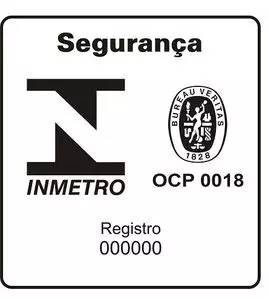
EU
PV CYCLE/GSE
PV CYCLE, established in 2007, specializes in the disposal of waste PV modules in EU countries, Switzerland, Norway, Leedsden and Iceland. Designed to promote resource recovery and recycling of expired PV modules, with the entire value chain of PV modules as their mission. With PV CYCLE, the PV industry should establish a complete waste management and recycling policy to achieve recycling of PV modules, environmental maintenance and maximization of benefits.
GSE is a simple spell by the Italian Electricity Authority Gestore dei Servizi Elettrici in Italian. GSE Authorization is the most important certification for European countries, starting on May 1, 2010. GSE certification is a necessary verification for importers who purchase goods up to 5000 Euros or more. This verification allows buyers in European countries to purchase goods from a GSE-certified supplier. For European buyers, GSE Authorization is a validation of the company.

Italy IMQ
IMQ is the abbreviation of the Italian Quality Marking Institute. Founded in 1951, it is an independent, non-profit organization that is responsible for the inspection and certification of electrical and gas appliances and their materials. IMQ controls about 170 types of equipment, more than 3,000 new products are tested each year, and more than 16,000 certified products. In Italy, groups and organizations supporting IMQ include the National Research Council (CNR), the Ministry of Internal Affairs, the Ministry of Industry, the Ministry of Public Works, the Ministry of Labor, the Ministry of Posts, the Ministry of Transport, the Ministry of Foreign Trade and the Ministry of National Defense. Among the IMQ executive members, in addition to the power bureaus in major cities, there are related committees, bureaus, associations, etc. that are interested in product certification. The status and qualifications of IMQ members are a good guarantee of the independence and impartiality of testing.
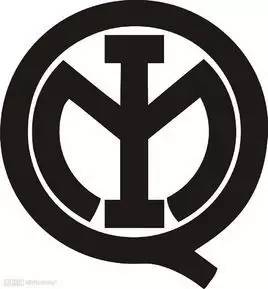
Saudi Arabia SASO
SASO is the abbreviation of the English Saudi Arabian Standards Organization, the Saudi Arabian Standards Organization. SASO is responsible for the development of national standards for all daily necessities and products. The standards also cover measurement systems, marking and so on.
Many of the SASO standards are based on the safety standards of international organizations such as the International Electrotechnical Commission (IEC). Like many other countries, Saudi Arabia has added some unique items to its standards based on its own national and industrial voltages, geography and climate, and ethnic and religious practices. In order to protect consumers, the SASO standard is not only for products imported from abroad, but also for products produced in Saudi Arabia.
The Saudi Arabian Ministry of Industry and Commerce and SASO require all SASO certification standards to include SASO certification when entering Saudi Customs. Products without a SASO certificate will be refused entry by Saudi Port Customs.
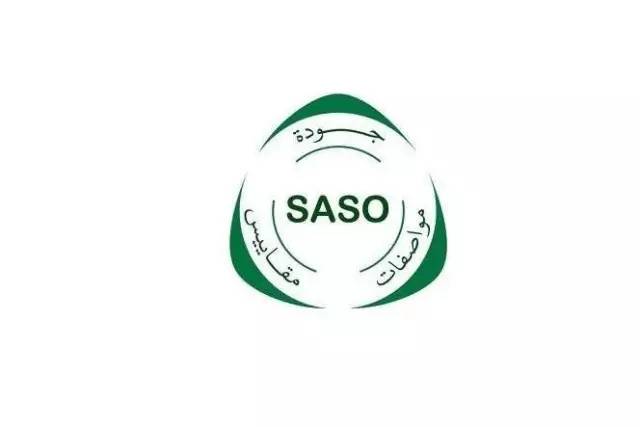
South Africa SABS
SABS certification refers to certification by the South African National Bureau of Standards. The South African Bureau of Standards (SABS) was established under the National Standards Act of 1945 and is a subsidiary of the South African Department of Trade and Industry. SABS is a neutral third-party certification body in South Africa responsible for system certification and product certification in South Africa. In addition to the responsibility of setting standards, SABS also manages mandatory normative standards on behalf of the state, grants the right to use the products in compliance with the specifications, and is also responsible for issuing certificates to enterprises that comply with ISO9001 and ISO9002, and represents the country and some major buyers. Responsible for inspection and testing before shipment, and issue a certificate of conformity. SABS certification is widely used in the fields of chemicals, biological products, fiber products and clothing, mechanical products, safety equipment, electrical products, civil engineering and construction, and automotive products. In recent years, SABS certification has become an important weight for the South African government to control the import of products.
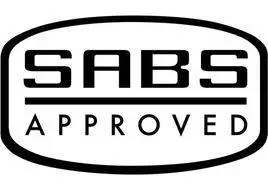
India MNRE
MNRE is India's new energy and renewable energy sector, the full name is Ministry of New and Renewable Energy. The government department is responsible for all matters related to all new energy and renewable energy. The goal is to develop and deploy new energy and renewable energy related work to meet India's energy supply requirements.
Israel SII
The Israeli SII agency is the abbreviation of the Standards Institution of Israel, which is responsible for the development of standards in Israel. Israel is also the first country in the Middle East to become an NCB. As a non-government organization, SII provides security, environmental protection, testing and other services to Israeli domestic and foreign input products. When applying for SII certification, the corresponding factory inspection must be carried out, and the packaging and color of the products must conform to the religious requirements of the Arab countries.
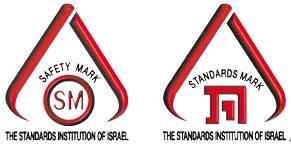
Russia GOST
GOST certification is a compulsory security certification for market access and is regarded as a passport for manufacturers to open and enter the market of the CIS countries such as Russia. GOST, Russian ГОСТ Государственный общесоюзный стандарт (the national standard of the whole Soviet Union), the foreign manufacturers export products to the CIS countries represented by Russia, should meet the Russian national quality standards, that is, through GOST certification. According to the product entry country, there are GOST-R certification (Russia, Russia), GOST-B certification (Belarus, Belarus), GOST-K certification (Kazakhstan, Kazakhstan) and so on.

Korea KEMCO
Korea kemco certification refers to South Korea's Korea Energy Management Corporation / New Renewable Energy Center: Korea Energy Management Corporation (KEMCO) / New & Renewable Energy Center) is an organization. The testing organization is the Korea Industrial Technology and Testing Institute (KTL).
Australia CEC listing
Listed by the Australian CEC Australia Clean Energy Commission, PV modules (solar panels) are added to the Clean Energy Council's accredited module database with Australian and international standards that must be compatible with this module. Whether seeking a rebate, the installation must comply with the AS/NZS5033 and AS3000 standards. To be listed on the Australian CEC, test data from a third-party independent laboratory with relevant qualifications is required to ensure the safety and good performance of the components in use, which are also used to calculate the expected system performance. So to get the Australian CEC, your components must first have European certification, such as the certificate according to IEC61215 and IEC61730, before you can apply for CEC.
|